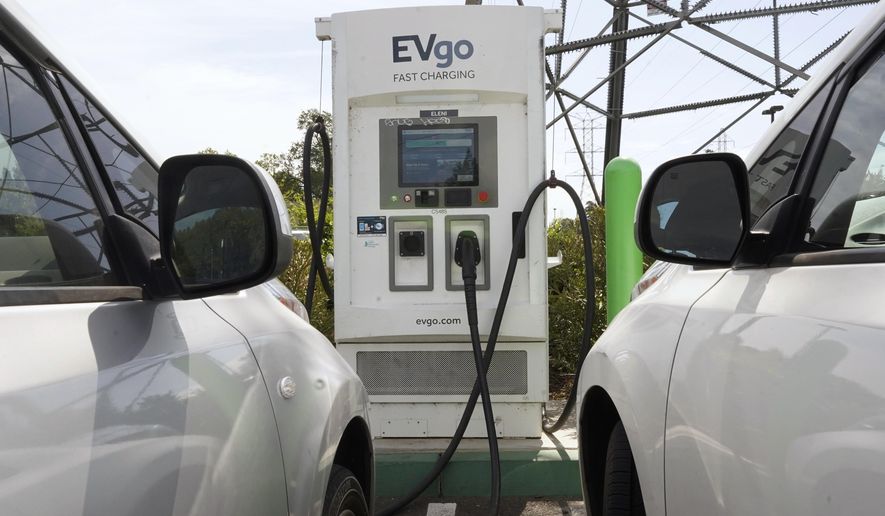OPINION:
The ancient, circular symbol of a serpent devouring its own tail may have fresh application as a depiction of modern-day California, with its unwise attempts to develop a carbon-free lifestyle. Similar practices have been tried elsewhere, only to trigger the return of old-fashioned deprivation, followed by a subsequent struggle to recreate lost prosperity. Americans shouldn’t rush to follow the trendy pattern of destroying success in the name of fighting climate change, only to be forced to rebuild it.
In its latest blow to well-being, the Golden State has committed to phasing out natural gas-powered furnaces and water heaters. The powerful California Air Resources Board recently voted unanimously to ban the sale of affordable appliances by 2030, making electric models the only viable alternative.
With an average retail price of 30 cents per kilowatt-hour, California’s electricity price is already 67% higher than the national average of 18 cents, according to EnergySage, a U.S. Department of Energy-funded solar power marketplace. The state’s average household electric bill runs $3,432 per year.
Previously, Democratic Gov. Gavin Newsom took a painful bite out of the Golden State’s economic viability with his 2020 executive order banning the sale of new gasoline-powered vehicles by 2035. Currently, California boasts more than 30 million vehicles, but only about 1 million are the favored zero-carbon-emission electric vehicles (EVs). It means the state’s 39 million residents face the prospect of purchasing EVs, which carry an average sticker price of nearly $67,000.
Saddled with the nation’s second-highest poverty rate, though, Californians can’t afford them. Hispanics and African Americans, comprising 46% of the population, have average incomes less than half that of the state’s owners of Teslas, Chevrolet Volts and other pricey models found among Kelley Blue Book’s top 10 EVs.
That means millions of Golden Staters may choose to maintain their older-model gas-powered vehicles rather than trade them for sleek plug-ins. Americans chortle at photos from Cuba, where streets teem with cars sporting ‘50s vintage tail fins, but they may not find a similar sight so funny in LA.
Given that the state’s energy grid is periodically threatened with rolling blackouts in summer, it’s hard to see how Sacramento’s carbon-obsessed decisions translate into quality-of-life improvements for beleaguered voters. Unsurprisingly, almost 118,000 voted with their feet and fled California in 2021.
As President Biden’s newly formed Office of Environmental Justice and External Civil Rights scours the nation for unfair environmental practices, it could arguably examine officialdom’s unaffordable transportation policies on the Left Coast.
Global reconsideration of carbon-reduction mandates is already occurring. In Britain, plans are underway to resume oil and gas drilling in the North Sea as fossil fuel restrictions leave its people threatened with relentless winter cold. Across Germany, cold showers and darkened buildings have prompted authorities to restart shuttered coal plants to conserve natural gas made scarce by Russia’s curtailment of supplies to Europe.
Like the snake eating its tail, a carbon-free lifestyle that devours prosperity in the name of fighting climate change frequently triggers a cycle of deprivation and reconsideration. It is one California trend that Americans should spurn.




Please read our comment policy before commenting.